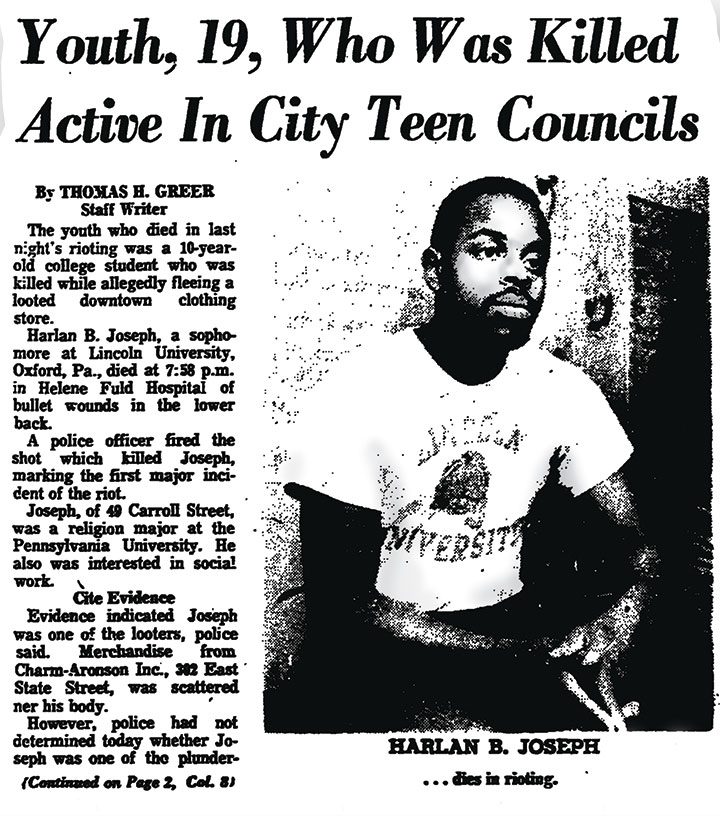Student Films to Focus on Death of Man Killed in ’68 Trenton Riots
Class Close-Up: Documentary Film and the City
This is the first in a series on Princeton courses of special interest.
Teachers: Documentary-film specialist Purcell Carson and history professor Alison Isenberg
Focus: Harlan Joseph, a 19-year-old black student at Lincoln University, was shot and killed by a police officer during a night of rioting in Trenton that followed the funeral of Martin Luther King Jr. April 9, 1968. News reports at the time said that 200 businesses were damaged and about 300 people were arrested. Students will use Joseph’s story as a starting point to examine how the civil unrest in the city affected residents and the surrounding businesses and schools.
The death of Joseph, who had been praised for his community involvement, is still remembered bitterly today. The officer involved said the shooting was an accident, and he was cleared by a police investigation, according to The Times of Trenton.
Background: This is the fourth course offered as part of The Trenton Project, directed by Carson, in which Princeton students create videos focusing on challenges and hopes of Trenton residents.
Assignments: Students will conduct interviews with people about the riots and their aftermath, shoot and edit video, and produce short films. They will also write a final research paper.
On the syllabus: Reading selections will include Why Don’t American Cities Burn? by Michael B. Katz and The Newark Frontier by Mark Krasovic; films will include Gordon Parks’ Diary of a Harlem Family and Errol Morris’ The Thin Blue Line.
Student view: “Participating in this course, I hope, will give me a deeper understanding of community race relations,” said Jordan Antebi ’19. “I hope our work adds new dimensions to a story that for decades has been primarily told in one way.”
What’s next: Film screenings will be held in Princeton and Trenton after the course is over. Isenberg and Carson are also working on their own 30-minute film on Joseph and the events surrounding his death; they are looking for people who lived in the Trenton area in the 1960s and remember the unrest. For details, visit thetrentonproject.com.












No responses yet